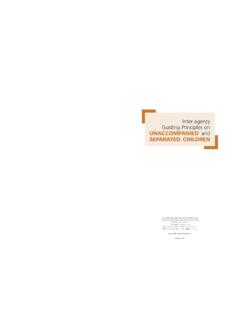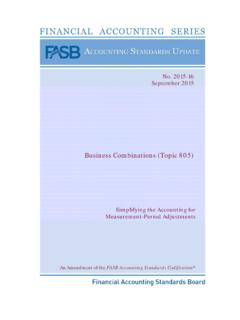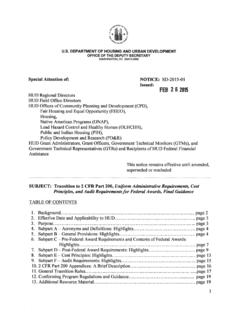Transcription of PRINCIPLES AND STANDARDS FOR OFFICES OF …
1 Association of Inspectors General Historic Carpenters Hall 320 Chestnut Street Philadelphia, PA 19106 PRINCIPLES AND STANDARDS FOR OFFICES OF inspector GENERAL Statement of PRINCIPLES Quality STANDARDS for OFFICES Quality STANDARDS for Investigations Quality STANDARDS for Inspections, Evaluations, and Reviews Quality STANDARDS for Audits MAY 2014 REVISION This page intentionally left blank. Introduction.. 1 Statement of PRINCIPLES for OFFICES of inspector General ..3 Basis of Legal Authority for an office of the inspector General .. 3 Quality STANDARDS .. 6 Quality STANDARDS for OFFICES of inspector General .. 7 Introduction .. 7 Independence ..8 Planning .. 10 Organizing .. 12 Staff Qualifications .. 13 Direction and Control .. 15 Coordination.
2 17 Reporting .. 18 Confidentiality .. 20 Quality Assurance .. 22 Quality STANDARDS for Investigations .. 25 Introduction .. 25 General STANDARDS .. 26 A. Staff 26 B. Independence .. 26 C. Due Professional Care .. 26 Qualitative STANDARDS .. 28 A. Quality Control .. 28 B. Planning .. 28 C. Data Collection and Analysis .. 29 D. Evidence .. 30 E. Timeliness .. 30 F. Reporting .. 30 G. Confidentiality .. 31 H. Follow-Up .. 31 Quality STANDARDS for Inspections, Evaluations, And Reviews .. 33 Introduction .. 33 General STANDARDS .. 34 A. Staff 34 B. Independence .. 34 C. Due Professional Care .. 34 Qualitative STANDARDS .. 37 A. Quality Control .. 37 B. Planning .. 37 C. Data Collection and Analysis .. 38 D. Evidence .. 39 E. Timeliness .. 40 F. Fraud and Other Illegal Acts .. 40 G. Reporting .. 41 H. Confidentiality .. 41 I.
3 42 Quality STANDARDS for Audits .. 43 Appendix ..45 Copyright 2001, 2004, 2014, Association of Inspectors General. All rights reserved. Except for use in a review, the reproduction or utilization of this work in any form or by any electronic, magnetic, mechanical, or other means, now known or hereafter invented, including xerography, photocopying, recording and computer disc burning, and in any information storage and retrieval system, is forbidden without the permission of the Association of Inspectors General. Copies of this book may be purchased from the Association of Inspectors General, c/o John Jay College of Criminal Justice, 445 West 59th Street Room 3521n, New York, NY 10019 or available online at INTRODUCTION The Association of Inspectors General was organized on October 26, 1996.
4 As stated in the Association's Articles of Organization, Constitution and Bylaws, the purpose of the Association is to: foster and promote public accountability and integrity in the general areas of the prevention, examination, investigation, audit, detection, elimination and prosecution of fraud, waste and abuse through policy research and analysis; standardization of practices, policies, and ethics, encouragement of professional development by providing and sponsoring educational programs, and the establishment of professional qualifications, certification, and licensing. On October 27, 1999, the Board of Directors of the Association voted to create a committee to establish generally accepted inspector general PRINCIPLES and STANDARDS .
5 The committee prepared these PRINCIPLES and STANDARDS following an open procedure that allowed for due process. The committee drafted the PRINCIPLES and STANDARDS , basing the STANDARDS on quality STANDARDS for federal inspectors general issued by the President's Council on Integrity and Efficiency. The drafts were developed for use by the broad range of inspector general OFFICES throughout the nation. Each of the drafts was then distributed to the federal, state, and local inspector general community for review and comment. The committee considered all comments in detail, revised the drafts as appropriate, and presented the drafts to the Board of Directors. On May 16, 2001, the Board of Directors of the Association found that the draft documents represent generally accepted PRINCIPLES , quality STANDARDS , and best practices generally applicable to federal, state, and local OFFICES of inspectors general.
6 On that date the Board formally approved the following five documents: Statement of PRINCIPLES for OFFICES of inspector General Quality STANDARDS for OFFICES of inspector General Quality STANDARDS for Investigations Quality STANDARDS for Inspections, Evaluations and Reviews Quality STANDARDS for Audits The appendix contains information about the committee and the process it followed, as well as subsequent amendments to the PRINCIPLES and quality STANDARDS . The Association recommends that OFFICES of inspector general adopt these documents for their use with the following or similar language: The generally accepted PRINCIPLES and quality STANDARDS , formally approved by the Association of Inspectors General on 16 May 2001, as most recently amended in May 2014, are hereby adopted by this office insofar as they do not conflict with statute, regulation, executive order, or other policy of this office .
7 2 This page intentionally left blank. 3 STATEMENT OF PRINCIPLES FOR OFFICES OF inspector GENERAL Accountability is key to maintaining public trust in our democracy. Inspectors general at all levels of government are entrusted with fostering and promoting accountability and integrity in government. While the scope of this oversight varies among OFFICES of Inspectors General (OIGs), the level of public trust, and hence public expectation, embodied in these OFFICES remains exceptionally high. The public expects OIGs to hold government officials accountable for efficient, cost- effective government operations and to prevent, detect, identify, expose and eliminate fraud, waste, corruption, illegal acts and abuse. This public expectation is best served by inspectors general when they follow the basic PRINCIPLES of integrity, objectivity, independence, confidentiality, professionalism, competence, courage, trust, honesty, fairness, forthrightness, public accountability and respect for others and themselves.
8 Inspectors general are granted substantial powers to perform their duties. In exercising these powers, inspectors general regard their OFFICES as a public trust, and their prime duty as serving the public interest. By the nature of their work, OIGs are held to the same or higher expectations than other government officials in using prudence with public resources. Because OIGs often identify and describe wasteful use of public resources by organizations under scrutiny, they have a concomitant duty to conduct their own work in an efficient and effective manner. office of the inspector General (OIG) work should adhere to professional STANDARDS and include quality controls to assure that all products are of the highest possible quality. This requires an internal quality assurance program and suggests periodic external quality reviews for each OIG.
9 An OIG is judged by the results of its efforts and the timeliness, accuracy, objectivity, fairness, and usefulness of these results. These are the cornerstones of OIG accountability. Qualitative and quantitative performance measures should be developed measured internally, and reported to the public. BASIS OF LEGAL AUTHORITY FOR AN office OF THE inspector GENERAL An OIG should be formally created as a legal entity. The Association recommends that the OIG be established by statute or, if necessary, by executive order. The statute should establish the OIG's mandate, authority, and powers; provide for confidentiality of records and proceedings; identify qualifications for the inspector general and staff; protect the office 's independence; and provide protection to whistleblowers.
10 Statement of PRINCIPLES for OFFICES of inspector General 4 A. Mandate: The statute should state the OIGs mission and identify the operations, programs, departments, or agencies subject to the OIG's jurisdiction. Commentary: The Association recommends that the legal authority establish a mission that encompasses prevention and detection of fraud, waste, and abuse; efficient and effective use of public resources; and promotion of public integrity. B. Authority: The statute should authorize the OIG to conduct specific functions, such as: to audit, inspect, evaluate, and investigate the activities, records and individuals affiliated with contracts and procurements undertaken by the governmental entity and any other official act or function of the governmental entity. to conduct criminal, civil and administrative investigations.





